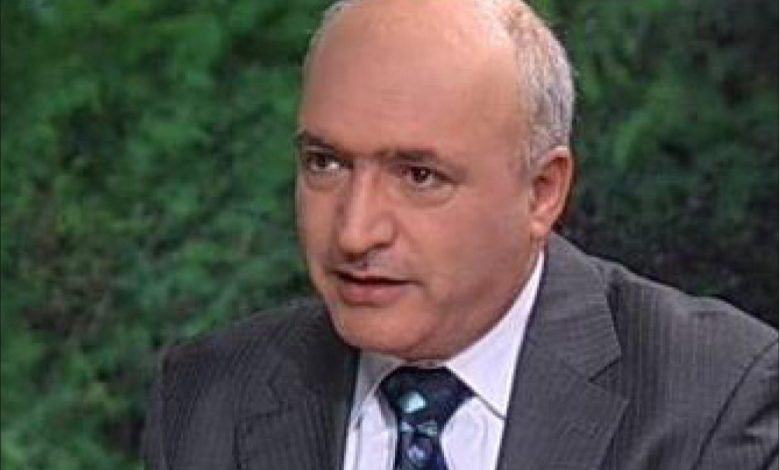
Nasser Kandil
The Russian presidential elections have been mocked by the giant official western media without any means for disputing the accuracy of voter participation and win margin, despite lines of 1 km in front of the Russian embassies in London and Rome, and despite consensus by Russian president’s proponents and opponents on the highest voter participation reaching 77%, and ending with a win for President Vladimir Putin by 87% of the votes, and despite investigations by Western reporters in Moscow and other Russian cities confirming the statements by Russian voters about coming out to say “Yes” to President Putin in the face of the western racist campaigns against anything Russian.
Despite it all, the official talk about Russia in the West comes out mocking the elections for the only reason that it did not result in changes in Russian policies towards the West and the war in Ukraine. As if in a state of denial, the West’s logic appears to dictate that the health of the exercise of democracy is not measured by the degree to which ballot boxes reflect voter wishes, but the degree to which ballot boxes are available to serve western policies. When questioned about the reason for its decline and failure, the West forgets that the answer lies in this racism, arrogance, and unrealism. Perhaps the biggest voter in these elections were the measures which accompanied the wave of sanctions decided by the West against Russia, and went after the Russian language, emblems of Russian literature and ballet, and the works of Tolstoy and Tchaikovsky’s music.
In Iran, exceptional elections take place outside their appointed time to fill the vacancy left by the passing of President Ebrahim Raisi in a helicopter crash and the loss of life of his foreign minister and a number of aides. Once the list of constitutionally accepted candidates is announced containing the name of the reform candidate Masoud Pezeshkian, western comments spring up playing a single tune, that the purpose for including a weak reform candidate was to legitimize the success of a strong conservative candidate. With the first election round results pointing to a second round and a competition between Pezeshkian and the reform candidate Saeed Jalili, comments in the West divide in half between incitement against the Iranian regime by spreading reports about fraud and pressure to prevent Pezeshkian from winning, and the other half maintaining that keeping Pezeshkian in the race was to suggest the credibility of elections designed for Jalili’s victory.
The elections end with an unprecedented voter participation of 50%, and a 20% increase in the second round through the participation of 6 million young adults and female voters, and the victory of Masoud Pezeshkian, who received congratulations and a promise of cooperation from his competitor, the reform candidate Jalili, and who announced his openness to the resumption of nuclear negotiations and normal relations with the West. Western comments divide in half, one represented by John Kirby, US National Security Council Coordinator for Strategic Communications, stating U.S. lack of interest in resumption of nuclear talks with Iran, and the second half represented by the Washington Post stating that the presidential elections do not change Iranian policies which are decided by Imam Khamenei, ignoring that a nuclear agreement was reached with Iran under Imam Khamenei and a reform president, and reneged by the American President Donald Trump and not by the conservative president who succeeded the reform president.
In the West, some elections have taken place and others are being prepared, while we hear Ex-President Donald Trump, who survived an assassination attempt, warning that the US is on the eve of a civil war. We heard similar warnings preceding the resounding defeat of French President Emanuel Macron’s party, and in the occupation entity, the hero of western democracy and war crimes Oscar holder, Benyamin Netanyahu, emerges, warning of a civil war, while no one in the East comes out with smart talk about western elections or mocks peoples abiding by elections and ballot boxes, and everyone follows up on the election process, competition, and results.
In Syria, memory remains vivid of the 2014 presidential elections, with the Syrian embassy in Lebanon witnessing one of its rounds, confirming that the Syrian people’s choice in favor of President Bashar Al Assad was not the fruit of assumed pressures inside Syria according to western podiums. Perhaps some still recall a 2018 CIA report predicting a 65% victory for President Al Assad if free elections were to take place among Syrians in Syria or abroad.
Again in Syria, workshops were held in the Syrian Arab Socialist Baa’th party bringing new faces to the forefront of leadership accompanied by documents and plans of action aspiring to change the foundations of the relationship between the party, the state, and the people. Then came the People’s Assembly elections yesterday as an attempt for the expression for the first phase of change on this path, with the leaders and podiums in the West, predictably divided in half, one claiming canned elections and known results, and the other stating that nothing will change because the high level state policies are decided by President Bashar Al Assad, as if gunpowder were just being discovered.
Syrians, on the other hand, continue on their path, voting and engaging in the effort of politically rebuilding their country, attempting to draw a map for economic advancement, in the shadow of a popular sentiment that the West is waging a starvation war against them similar to the one waged by the occupation against Gaza. For this reason, just as the fate of Palestinians, when they desire a nation and a state, is to deal with the consequences of war, starvation, and extermination, the fate of Syrians who have rescued their country from the danger of collapse, is to persevere in rescuing their country from the risks of partition and to succeed in expelling occupation, and in the process to withstand the blockade and the war of starvation.




